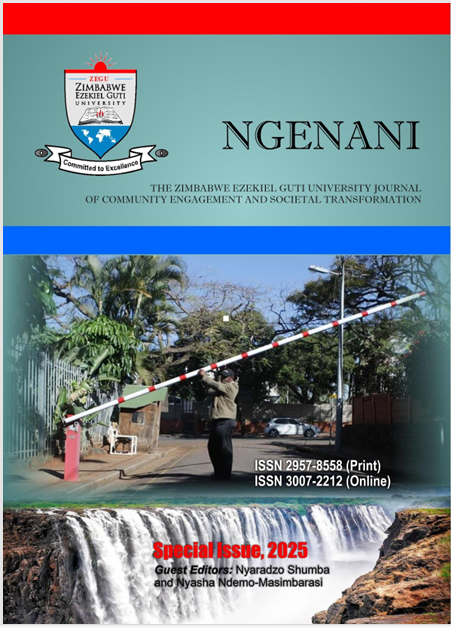Exploring Impact of Mining -induced Displacement on Access to HIV&AIDS medications among Primary School Learners in Zimbabwe
DOI:
https://doi.org/10.71458/eb932q14Keywords:
policy, implementation, targeted intervention, healthcare service, mining-affected communities, health rightsAbstract
This research output, based on a qualitative research methodology, explores the impact of mining-induced displacement on access to HIV&AIDS medications among primary school learners in rural Zimbabwe, highlighting the implications for health equity on educational outcomes. Despite growing discourse on the socioeconomic impacts of mining in Zimbabwe, there is a significant gap in understanding how these displacements specifically affect vulnerable populations, particularly children. The main argument presented in this article is that there is need to explore the impact of Mininginduced Displacement on Access to HIV&AIDS Medications among Primary School Learners in Zimbabwe. The research focuses on a diverse group of 22 participants, selected purposively based on gender, expertise and geographical location. These included two nurses, six learners, four teachers, four parents, two village heads, two representatives from non-governmental organisations (NGOs) and two human rights lawyers. Data was collected through two focus group discussions – one with learners and the other with adults – to facilitate open dialogue. Ethical considerations were prioritised. Data was analysed thematically. Findings reveal that mining-induced displacement severely disrupts the continuity of healthcare services leading to decreased access to HIV&AIDS medications for affected learners, thereby exacerbating health vulnerabilities. It is recommended that policy-makers implement targeted interventions to ensure the provision of uninterrupted healthcare services, particularly in mining-affected communities, to safeguard the health rights of primary learners




